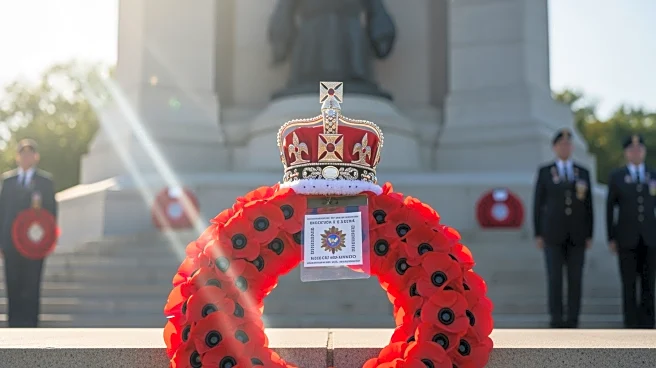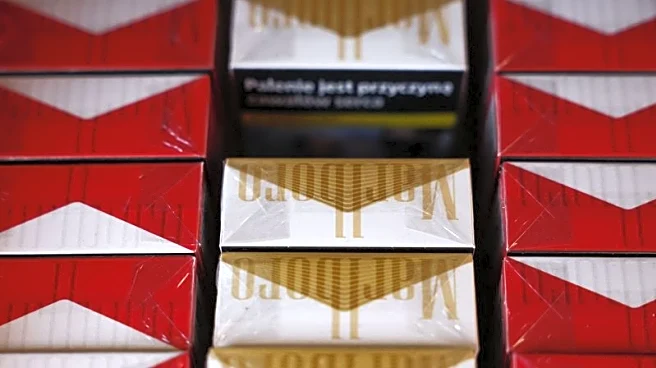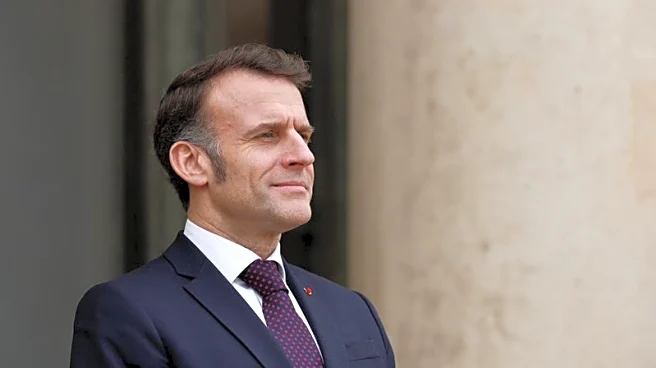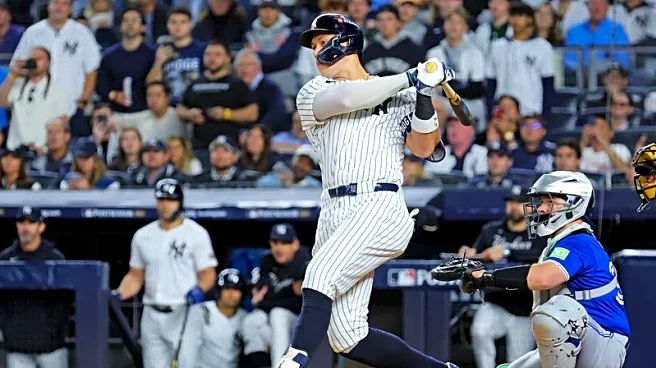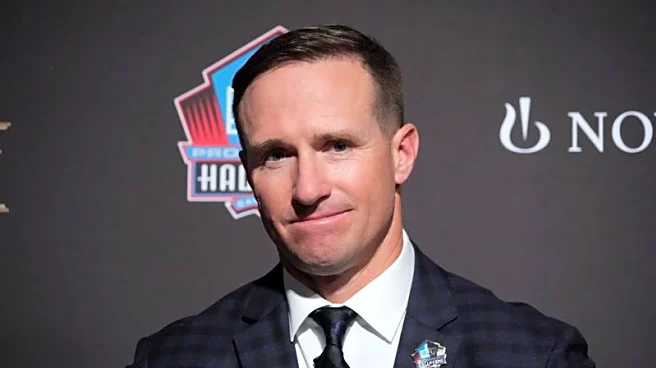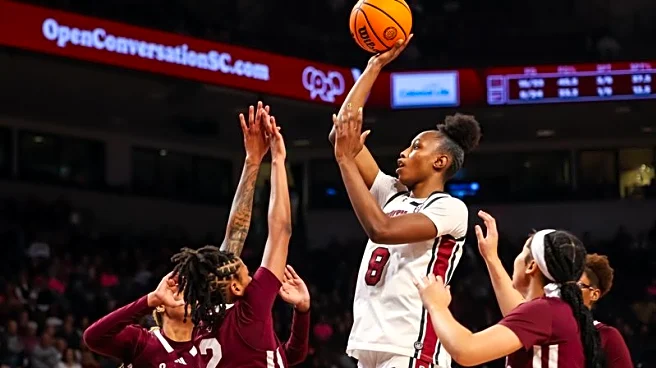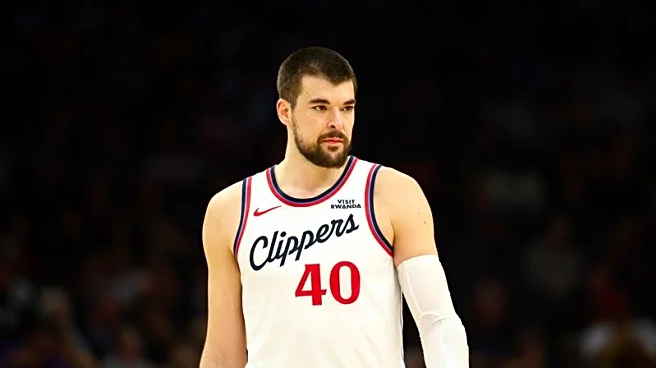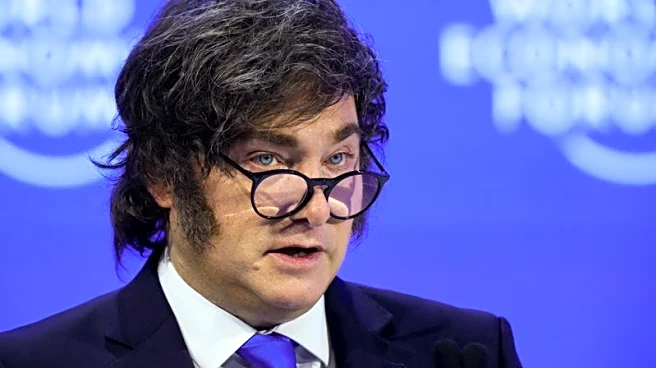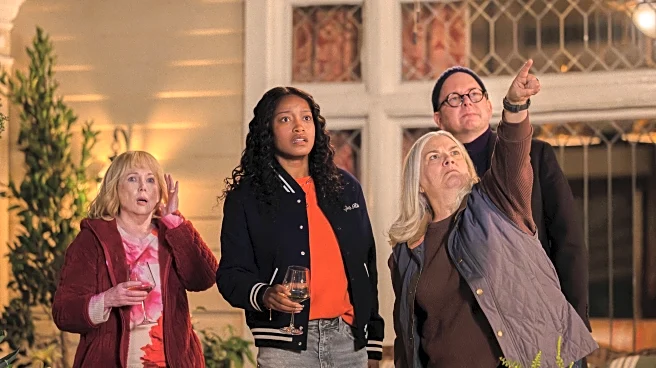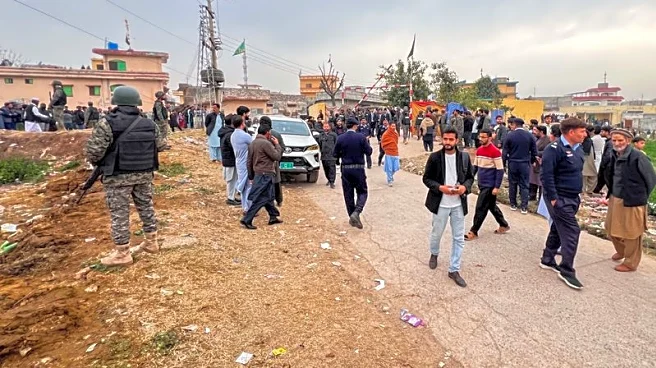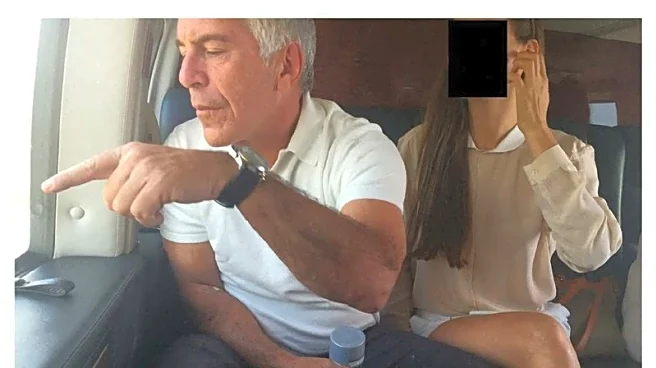What's Happening?
King Charles led the Remembrance Sunday service at the Cenotaph, marking 80 years since the end of the Second World War. The event included a two-minute silence at 11am, signaled by the firing of guns from the King's Troop on Horse Guards Parade. Approximately
10,000 armed forces veterans participated in the Royal British Legion's march-past, alongside 20 veterans from the Second World War. The King laid a wreath at the central London monument to honor those who lost their lives in service. He was accompanied by other members of the royal family and senior politicians, including Sir Keir Starmer.
Why It's Important?
The Remembrance Sunday service is a significant event in the UK, serving as a solemn reminder of the sacrifices made by military personnel during wartime. It underscores the nation's commitment to honoring its veterans and those who have served in the armed forces. The participation of King Charles and other high-profile figures highlights the importance of this tradition in British culture and its role in fostering national unity and remembrance. The involvement of Second World War veterans adds historical depth to the ceremony, connecting past and present generations in a shared act of commemoration.
What's Next?
The Remembrance Sunday service is an annual event, and its continuation ensures that the legacy of those who served in the military is preserved. Future services may see increased participation from younger generations, as efforts to educate and involve them in historical remembrance continue. The presence of political leaders and members of the royal family at such events may influence public policy related to veterans' affairs and military history education. Additionally, ongoing discussions about the role of the monarchy in public life may be informed by the visibility and actions of its members during such ceremonies.
Beyond the Headlines
The Remembrance Sunday service not only honors past sacrifices but also serves as a reflection on current military engagements and the ongoing challenges faced by veterans. It raises awareness about the need for comprehensive support systems for veterans, including mental health services and social reintegration programs. The event also prompts discussions about the ethical responsibilities of nations in conflict resolution and peacekeeping efforts. As the world continues to grapple with geopolitical tensions, the lessons from past wars remain relevant in shaping future diplomatic and military strategies.
